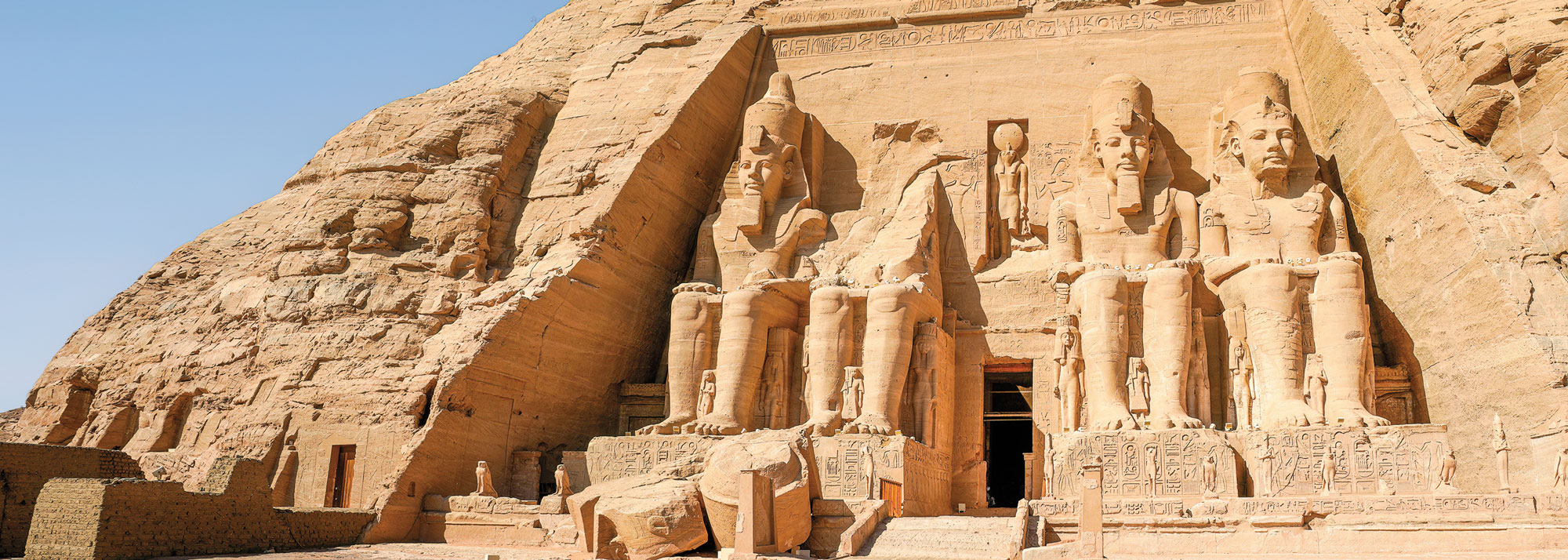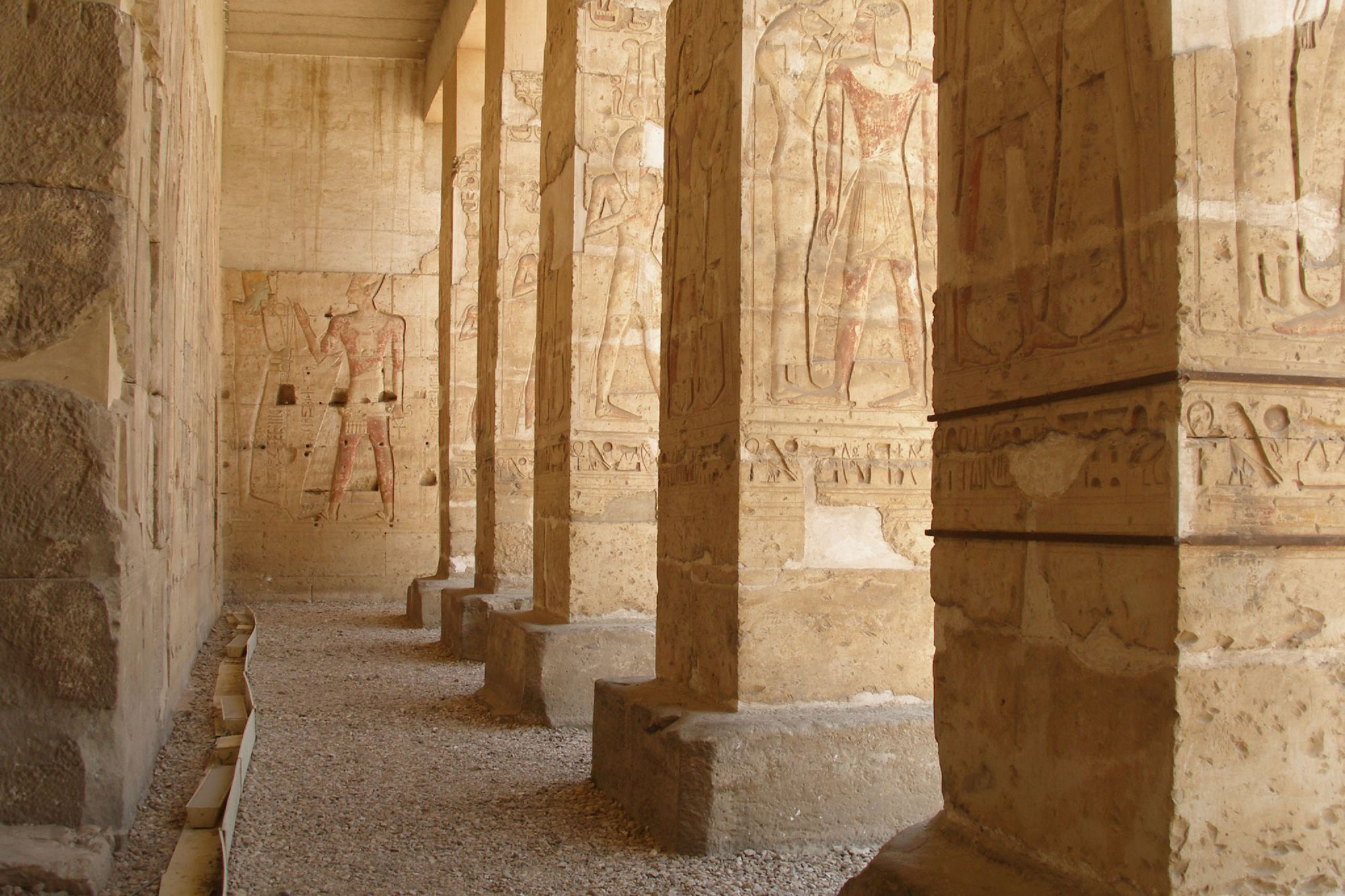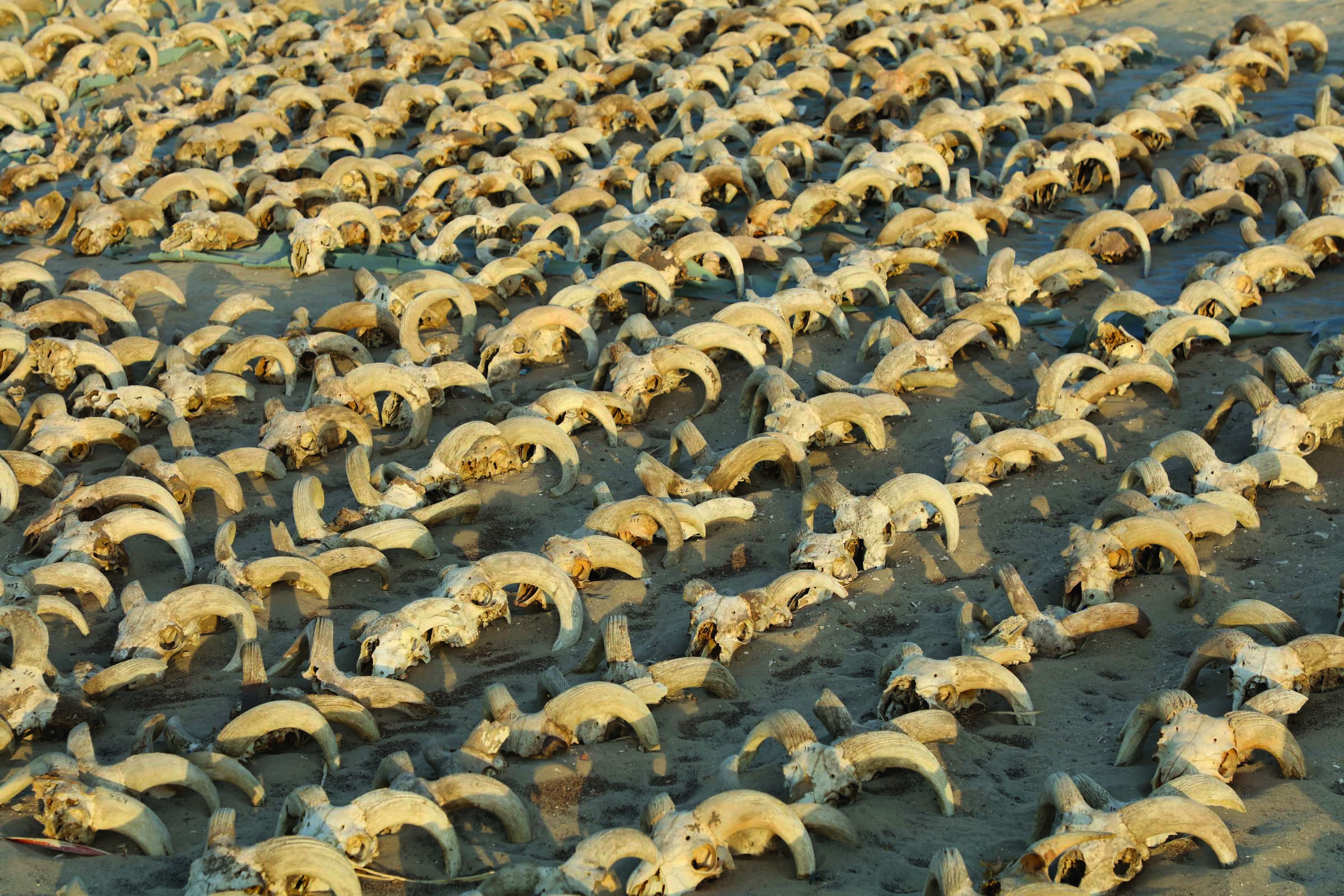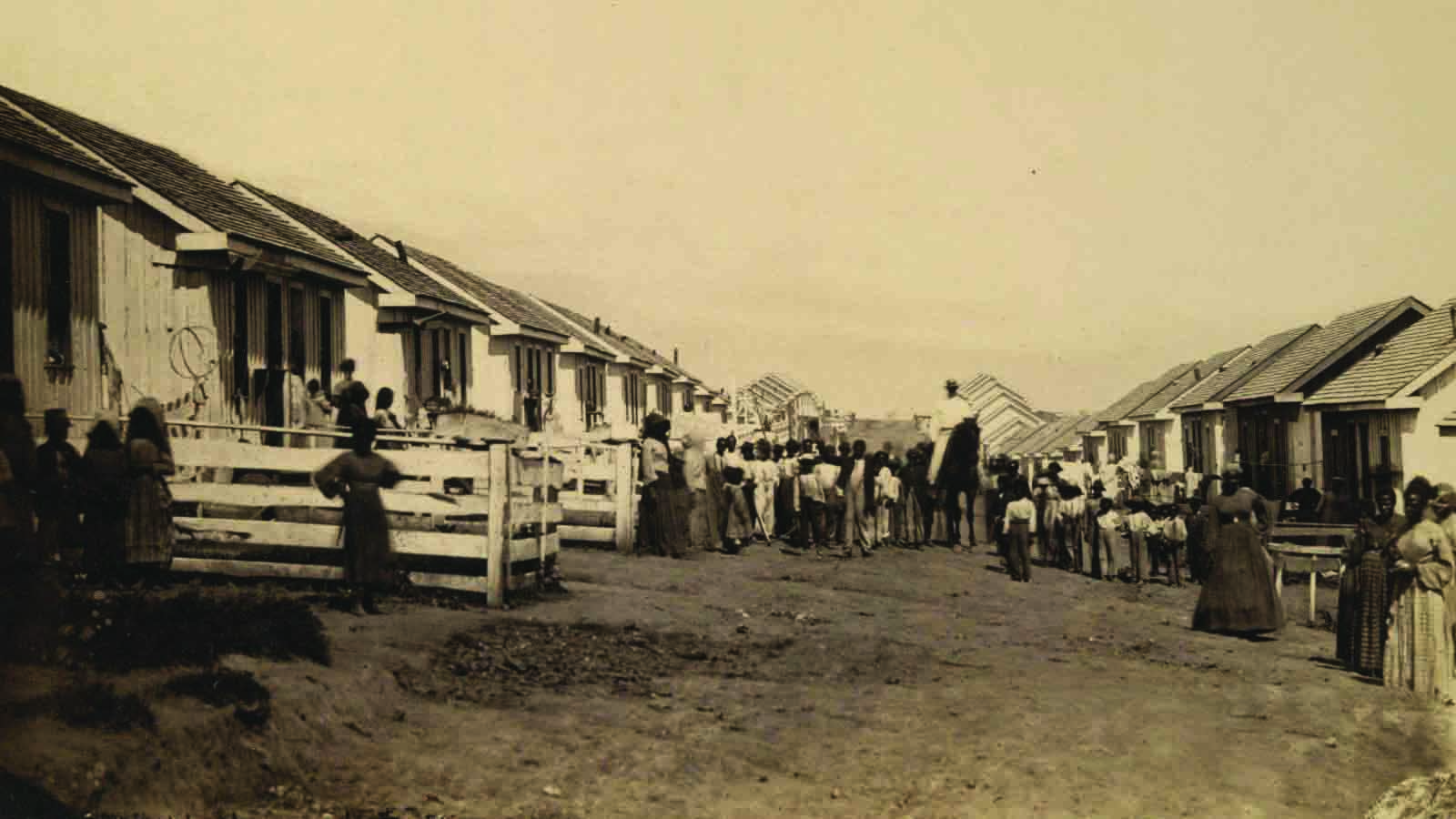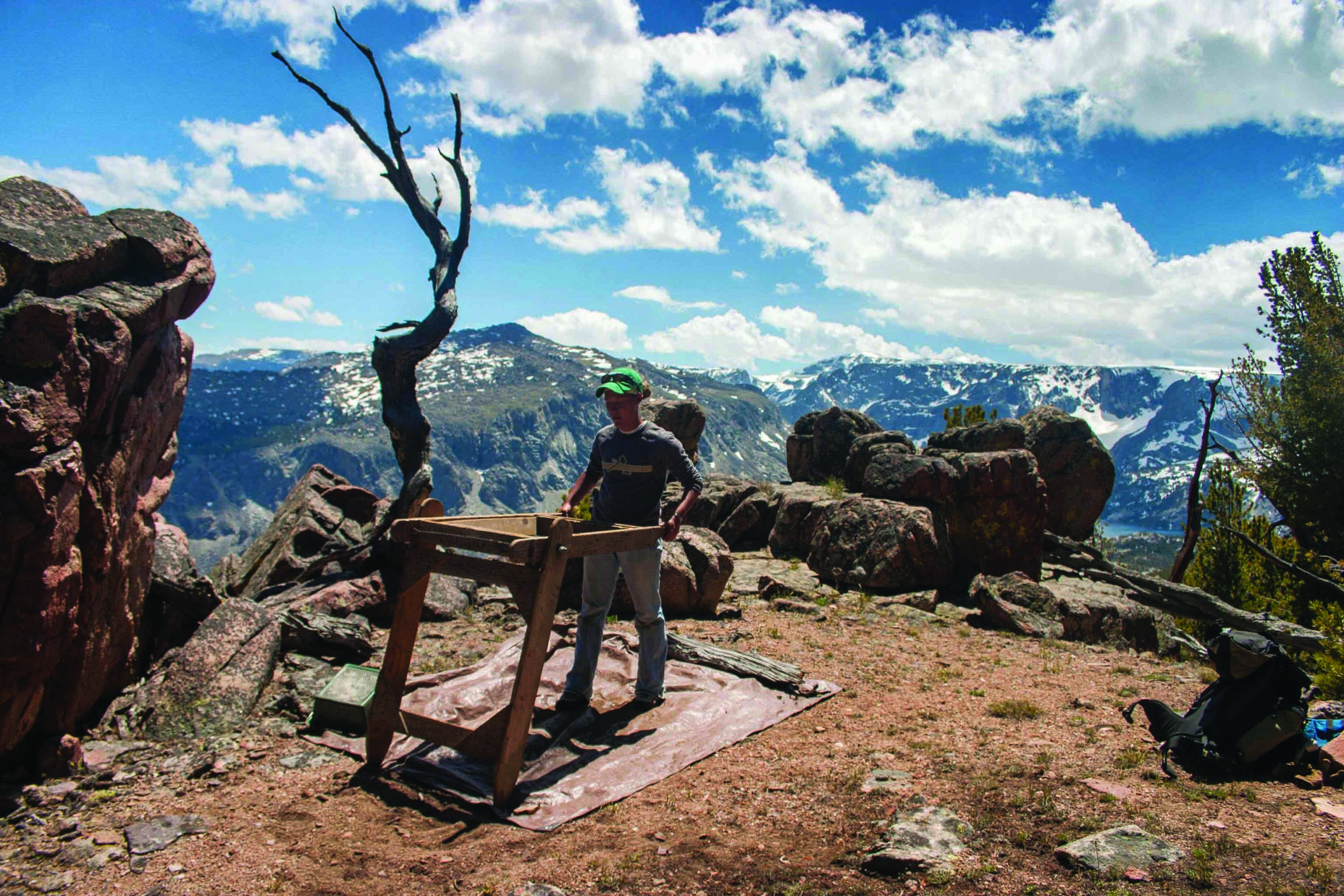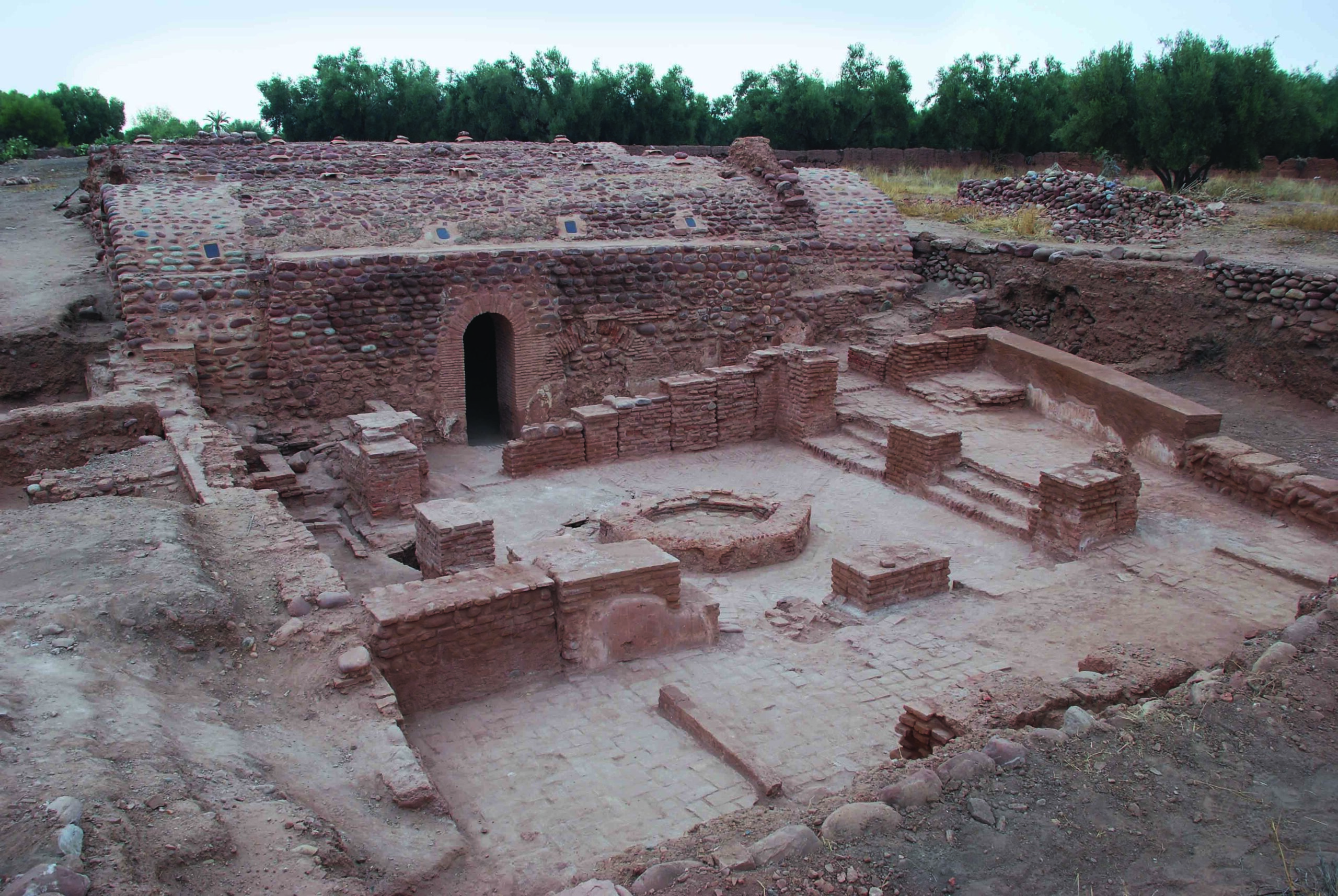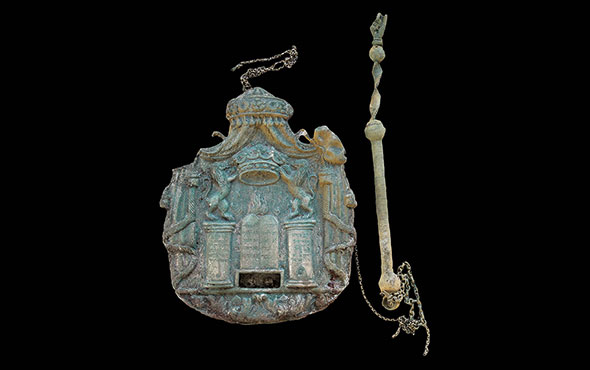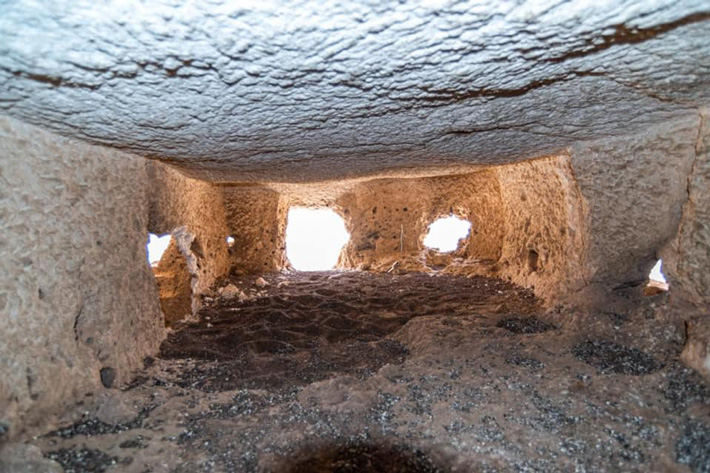
CAIRO, EGYPT—Ahram Online reports that a team led by Mohammed Abd Al-Badea discovered a series of rock-cut openings in a cliff while surveying Upper Egypt’s valley of Abydos. No burials have been found at the site, but pottery suggests it was used during the Ptolemaic period, from 304 to 30 B.C. Mostafa Waziri of Egypt’s Supreme Council of Antiquities explained that the chambers started as natural formations created by flowing water over thousands of years. The openings carved into the cliff face lead to areas with single and multiple chambers, which are connected with narrow doorways cut into the rock. The chambers were equipped with shallow niches, benches, depressions or troughs cut into the floor, and holes cut into the walls just below the ceiling. Handholds or places to attach rope were found near the doorways. One graffito naming Khuusu-n-Hor, his mother Amenirdis, and grandmother Nes-Hor was found in one chamber, and a single carving depicting two small figures was found near one of the entrances. To read about a boat burial excavated at Abydos that dates to around 1850 B.C., go to "A Pharaoh's Last Fleet."



